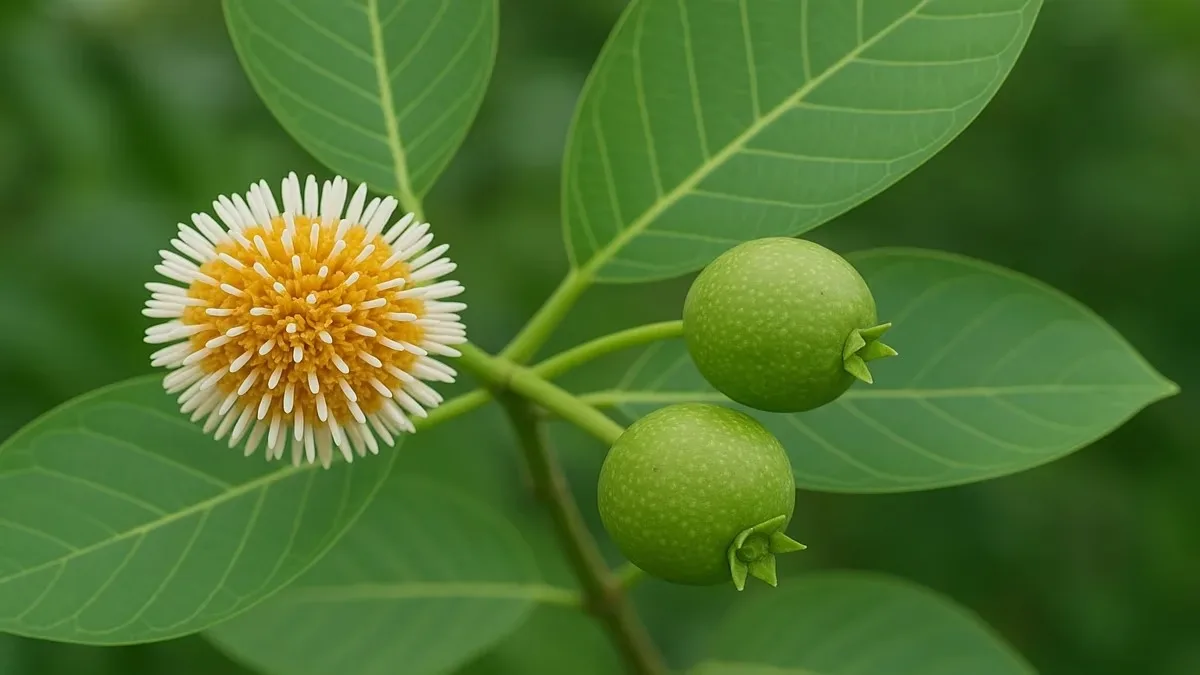Hydrocele Ayurvedic Remedies
Hydrocele is a health condition characterized by the accumulation of fluid in the scrotum, leading to swelling and discomfort. In Ayurveda, it is seen as a result of aggravated Pitta dosha, obstruction in shukra vaha srotas (channels of reproductive fluid), and poor lifestyle habits. In this article, we explore the symptoms, causes, and effective Ayurvedic home remedies for hydrocele.
What is Hydrocele?
Hydrocele is a swelling in the scrotum that occurs when fluid collects around the testicle. While often painless, it can lead to discomfort, stiffness in the lower abdomen, and difficulties in mobility or sitting.
Common Symptoms of Hydrocele
- Swelling of the scrotum
- Throbbing pain in the lower abdomen and groin
- Enlargement of the testicles
- Stiffness of the supporting ligaments and blood vessels
- A feeling of heaviness or discomfort while walking or sitting
Major Causes of Hydrocele in Ayurveda
1. Internal Causes (Shukra Dosha Related)
- Overstimulation of testicles due to lustful thoughts or sexual excitement
- Blockage in the natural flow of semen (shukra vaha srotas)
- Semen decomposition due to long-term retention or obstruction
- Pitta imbalance, constipation, or weak lower abdominal health
2. External Causes
- Excessive physical activity without wearing supportive undergarments (Kaopiina)
- Sudden injury or impact to the testicles
- Improper bathing habits (incomplete immersion in water or dry lower back)
- Nervous system irritation due to cold and dryness
Effective Ayurvedic Treatment for Hydrocele
1. Yogic Practices and Mudras
Perform the following yoga and breathing techniques regularly on an empty stomach:
Morning Routine:
- Vasti Kumbhaka
- Ámbhasii Práńáyáma
- Utksepa Mudra
- Gomukhásana
- Sarváungásana
Evening Routine:
- Upaviṣṭa Uddiyana Mudrá
- Agnisára Mudrá
- Utkata Vajrásana
These practices help balance the Apana Vayu, stimulate digestion, and clear blockages in the reproductive system.
Dietary Guidelines for Hydrocele
- Eat light and easily digestible foods.
- Focus on liver-friendly and Pitta-balancing foods like bitter vegetables, rice, and fruits.
- Ensure regular bowel movements to prevent constipation.
- Fast on Ekadashi, Purnima, and Amavasya as per the lunar cycle.
- Avoid spicy, oily, and heat-generating foods.
Do’s and Don’ts for Hydrocele Patients
✅ Do’s:
- Wear tight-fitting undergarments like Kaopiina (Langot).
- Apply alternating cold and hot compresses daily.
- Practice disciplined yogic routines.
❌ Don’ts:
- Avoid sexual excitement or lustful thoughts.
- Do not engage in high-impact physical activities.
- Refrain from bathing without fully immersing the body.
How to Apply Hot and Cold Compress for Hydrocele
- Lie down comfortably on your back.
- Apply an ice pack or cold compress to the scrotum for 15–20 minutes.
- Switch to a warm compress (flannel dipped in warm water) for 1–2 minutes.
- Repeat the cycle 2–3 times.
- The final compress before bedtime should be cold to keep the area cool overnight.
Top 7 Ayurvedic Remedies for Hydrocele
Here are time-tested Ayurvedic applications and herbal remedies to treat hydrocele naturally:
- Kadamba Leaves Wrap
Wrap the testicles in fresh kadamba leaves for natural relief. - Ammonium Chloride Bandage
Dissolve ammonium chloride in water and use the solution to soak a clean bandage. Wrap around the testicles. - Opium and White Sandal Paste
Mix small amounts of opium and white sandalwood into a paste and apply externally. - Mixed Leaf Paste
Grind equal parts of mango, jamun (jám), wood apple (kayetbel), and lemon leaves into a paste. Apply to the scrotum. - Brahmayasti Root Paste
Crush the root of Brahmayasti (bamunháti) in rice-washed water and apply the paste externally. - Zizyphus Jujuba Root Tying (Tuesday Ritual)
On a Tuesday, tie the root of a barren jujube plant around your waist so it dangles and touches the testicles. - Borácaka Leaf Fibers
Tying borácaka (a medicinal plant) fibers around the waist is also said to provide fast relief.
Final Thoughts: Natural Healing for Hydrocele
Ayurveda views hydrocele as a condition resulting from both physical and emotional imbalance. By addressing the root causes—lustful thoughts, physical strain, dietary issues, and poor hygiene—healing can be both natural and lasting.
Combine herbal remedies with yogic discipline, proper lifestyle, and diet, and avoid triggers that aggravate the condition. Always consult a qualified Ayurvedic practitioner before starting any herbal treatment.
“Read how Ayurveda supports natural treatment for male infertility and impotency.”
“Learn about safe natural remedies for Hernia with Ayurvedic herbs and lifestyle care.”
“For additional resources, check out the full articles in our Health Blog.”
Frequently Asked Questions:-
Q1. What is hydrocele?
Ans: Hydrocele is a condition where fluid collects around the testicles, causing swelling in the scrotum. It is usually painless but can become uncomfortable if it grows large.
Q2. What causes hydrocele according to Ayurveda?
Ans: Ayurveda considers hydrocele as a disorder of Kapha dosha and impaired fluid metabolism, leading to abnormal fluid accumulation around the testes. Injury, infection, or imbalance of body fluids may contribute.
Q3. What are the common symptoms of hydrocele?
Ans: Swelling in the scrotum
Feeling of heaviness in the groin
Discomfort while walking or sitting
In some cases, mild pain or tenderness
Q4. Can Ayurveda cure hydrocele without surgery?
Ans: Yes. In mild to moderate cases, Ayurvedic herbs, diet, and therapies can help reduce swelling, improve fluid balance, and prevent recurrence. Advanced or very large hydroceles may require surgery.
Q5. Which Ayurvedic herbs are beneficial for hydrocele?
Ans: Punarnava (Boerhavia diffusa) – reduces fluid accumulation and swelling
Gokshura (Tribulus terrestris) – improves urinary and reproductive health
Kanchanar (Bauhinia variegata) – reduces glandular swelling
Varuna (Crataeva nurvala) – supports urinary system
Triphala – detoxifies and improves digestion
Trusted External Resources
For more information on Ayurveda, yoga, and natural wellness, explore these authoritative resources:
